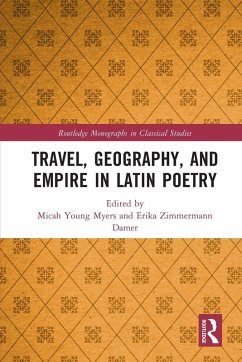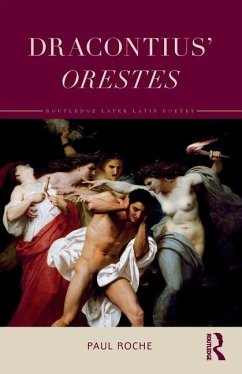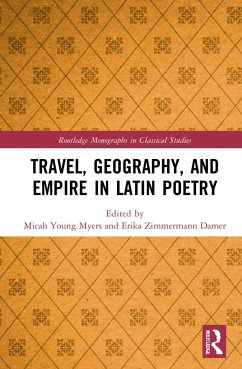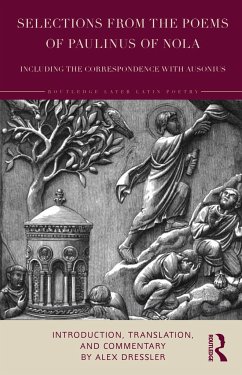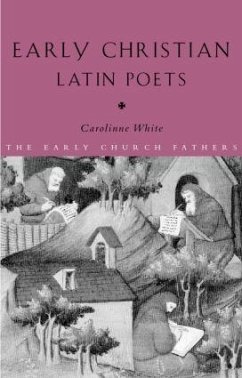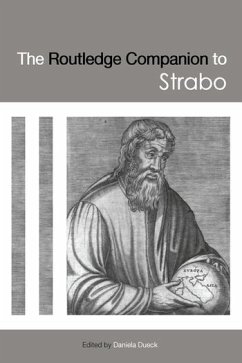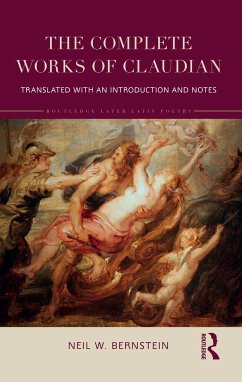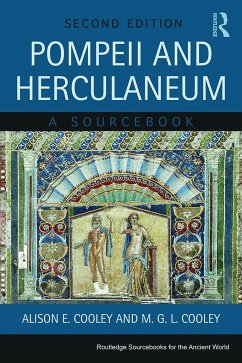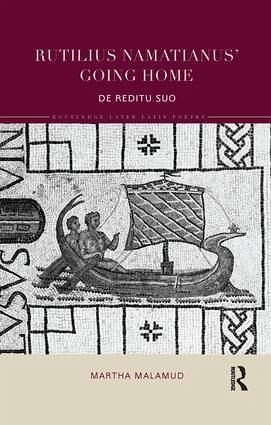
Rutilius Namatianus' Going Home
De Reditu Suo
Versandkostenfrei!
Versandfertig in 6-10 Tagen
41,99 €
inkl. MwSt.
Weitere Ausgaben:

PAYBACK Punkte
21 °P sammeln!
Martha Malamud provides the only scholarly English translation of De Reditu Suo with significant notes and commentary that explore historical, literary, cultural, and mythical references, as well as commenting on literary allusions, the structure, diction, and style of the poem, and textual issues.De Reditu Suo provides fascinating insights into travel and communications networks in the rapidly changing, fragmented world of the fifth century. A substantial introductory essay explores Rutilius' place in several intellectual and literary traditions, as the poem is a sophisticated piece of litera...
Martha Malamud provides the only scholarly English translation of De Reditu Suo with significant notes and commentary that explore historical, literary, cultural, and mythical references, as well as commenting on literary allusions, the structure, diction, and style of the poem, and textual issues.
De Reditu Suo provides fascinating insights into travel and communications networks in the rapidly changing, fragmented world of the fifth century. A substantial introductory essay explores Rutilius' place in several intellectual and literary traditions, as the poem is a sophisticated piece of literature that both draws on the rich tradition of classical Latin poetry and reflects the distinctive formal features of late antique poetry. The poem also conveys the thoughts of a man passionately devoted to Rome and its cultural heritage, enmeshed in the tumultuous political and social upheaval of his day, caught between his hopes for Rome's restoration and his fear of its disintegration.
With line-for-line translation from the Latin and a scholarly introduction, extensive notes, and comprehensive bibliography, Martha Malamud makes this important text accessible and relevant for students and scholars in Classics, Comparative Literature, Religious Studies, Medieval Studies, and Ancient History, as well as independent readers with an interest in the literature of the period.
De Reditu Suo provides fascinating insights into travel and communications networks in the rapidly changing, fragmented world of the fifth century. A substantial introductory essay explores Rutilius' place in several intellectual and literary traditions, as the poem is a sophisticated piece of literature that both draws on the rich tradition of classical Latin poetry and reflects the distinctive formal features of late antique poetry. The poem also conveys the thoughts of a man passionately devoted to Rome and its cultural heritage, enmeshed in the tumultuous political and social upheaval of his day, caught between his hopes for Rome's restoration and his fear of its disintegration.
With line-for-line translation from the Latin and a scholarly introduction, extensive notes, and comprehensive bibliography, Martha Malamud makes this important text accessible and relevant for students and scholars in Classics, Comparative Literature, Religious Studies, Medieval Studies, and Ancient History, as well as independent readers with an interest in the literature of the period.





